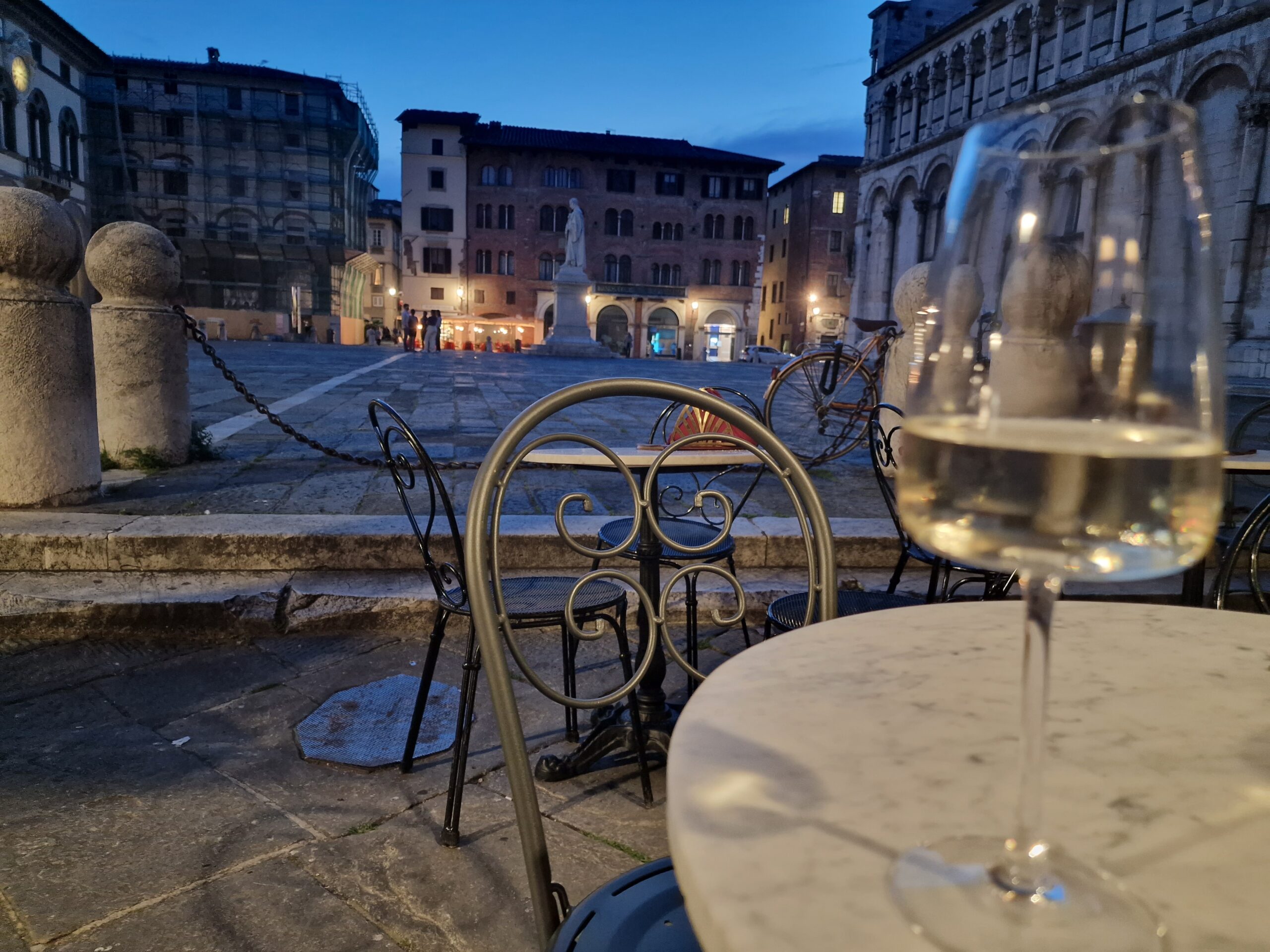The bar culture in Italy differs so much from Scotland that it’s a bit like comparing an Aperol Spritz with Buckfast.*
In Italy, many bars open early in the morning and are popular breakfast spots for locals on their way to work, for parents fresh from dropping the kids off at school, and local residents looking to chew the fat with friends or a familiar face at the bar or serving behind it.
The Italian breakfast culture itself is a joy to a visitor like me. Select your cornetto (sweet pastry) or savoury snack from the counter and order your coffee of choice. For most Italians it will be a shot of espresso, taken while stood at the bar, but for me it’s a milkier cappuccino or cappuccio as some locals prefer – which translates literally as a monk’s hood as the white froth on the coffee is said to look like a clergyman’s habit,
Regardless, unless you really want to stand out as a tourist, don’t order a cappuccino after 11am – midday at a stretch – as this is viewed very much as a morning drink.
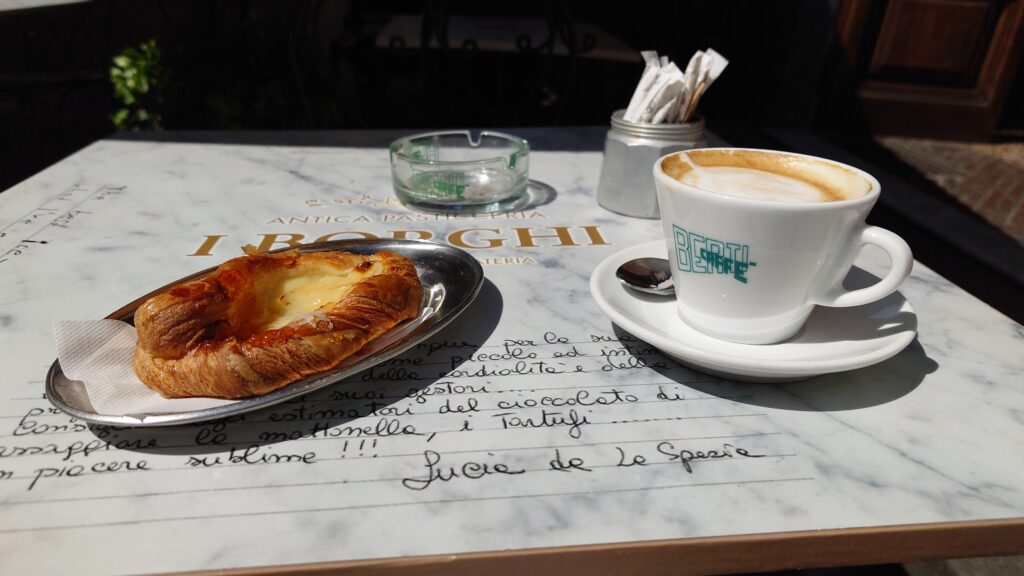
The same bar serving up your cappuccino will also serve lunch and very likely be open throughout the afternoon for coffees, drinks and snacks, and as the afternoon slides effortlessly towards the end of the working day and early evening, aperitivo will be served.
Strictly speaking aperitivo is a pre-dinner drink – from the Latin aperire and traditionally taken to “open the stomach before dining”. Locals and visitors alike often opt for an Aperol Spritz, the Irn Bru-coloured mix of Aperol (an Italian liqueur or “little bitter”), with soda and prosecco – or a Campari Spritz – but both are too bitter for my taste and on my recent visit to Lucca my preferred tipple was a nice, chilled glass of prosecco.
It varies from bar to bar but aperitivo will usually come with a small free snack – sometimes as simple as crisps (chips), nuts and olives, but in other places it can stretch to a small plate of salumi alongside slivers of cheese and bread, as is the case at one of my favourite haunts, the small but perfectly formed La Tana del Boia in Piazza San Michele.
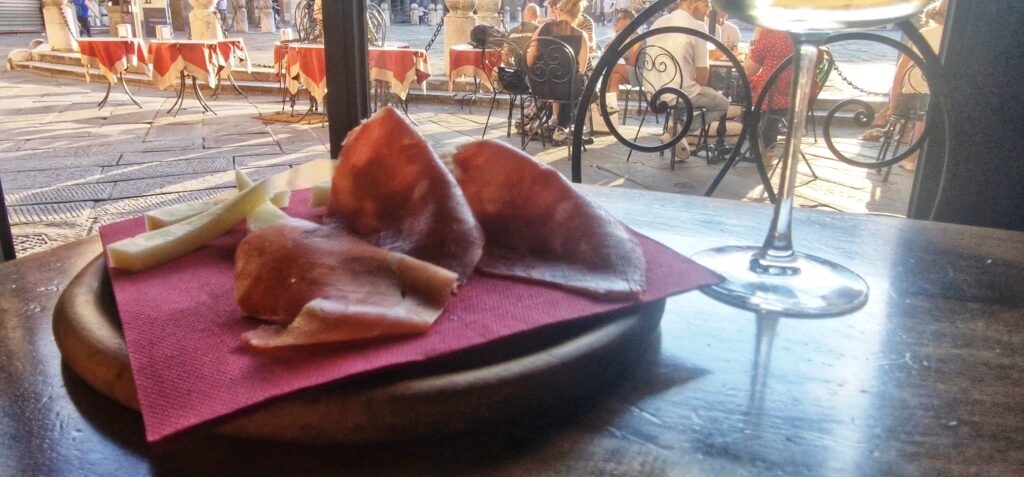
And once the aperitivo crowd depart, the same bar which has been open from breakfast time will stay open late into the evening serving up beers, wines and cocktails and not infrequently gelato.
Can you just imagine this operating model in Scotland – not bloody likely.
If you are visiting Italy for any length of time, you could do worse than settling on a local bar and becoming a temporary “local” – and by that I don’t mean going in and getting hammered every night.
Start off with breakfast and try a few basic Italian words when choosing your cornetto – and don’t worry if you are not sure what you are asking for, the staff are usually happy to help you out, especially when you are seen to be making an effort.
If you stick with it, in time you will be greeted like a regular with a warm “ciao” or maybe “salve” (a more formal hello) as was the case at the two bars I frequented during my two month stay in Lucca.
Antico Caffe di Lucca in the San Paolino district was less than a stone’s throw from my rented apartment and served up a great selection of cornetti and savoury options not to mention a decent cappuccino, so it was a no brainer.
Situated directly opposite the city courts in via Galli Tassi, it was a fascinating spot – a solid mix of local residents and tradesman heading to work, with court officials and lawyers and their “clients” making up the customer base later in the day.
After a few mornings of stopping in for breakfast and with introductions made, bar owner Mario and his young colleague Francesca always offered a friendly “ciao Stephen” as they told me what cornetti was on offer and prepped my “cappuccino caldo” – a hotter coffee than most Italian bars serve – so if like me, you prefer your morning cuppa more than lukewarm, ask for a cappuccino “caldo” or “bollente”.
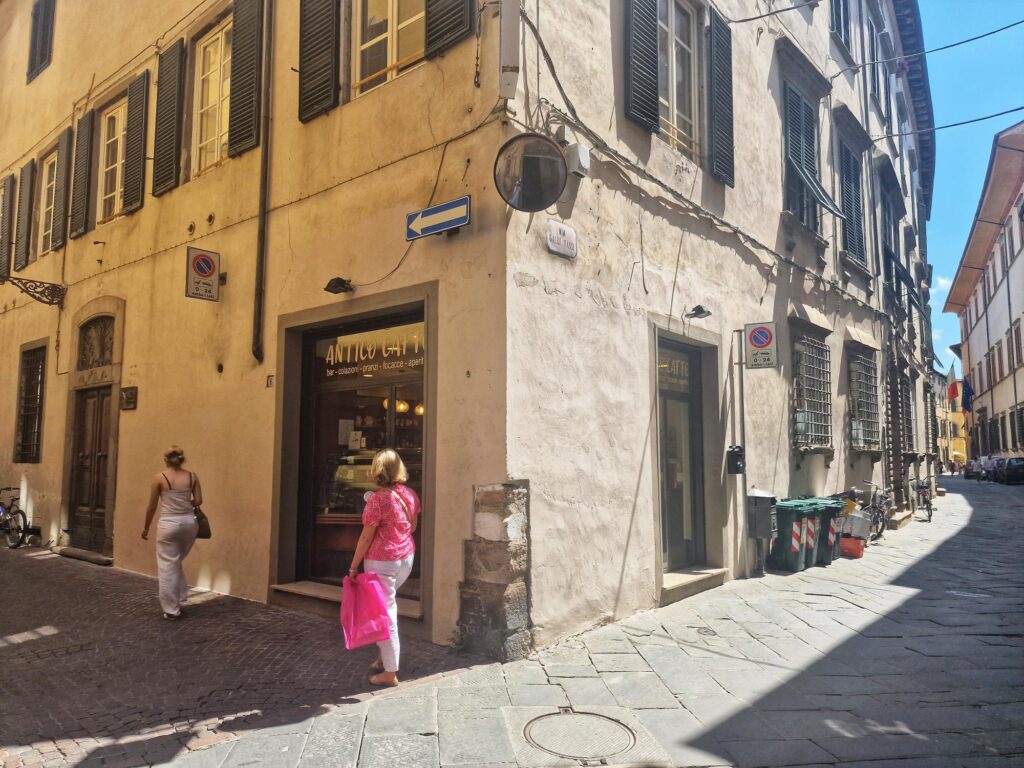
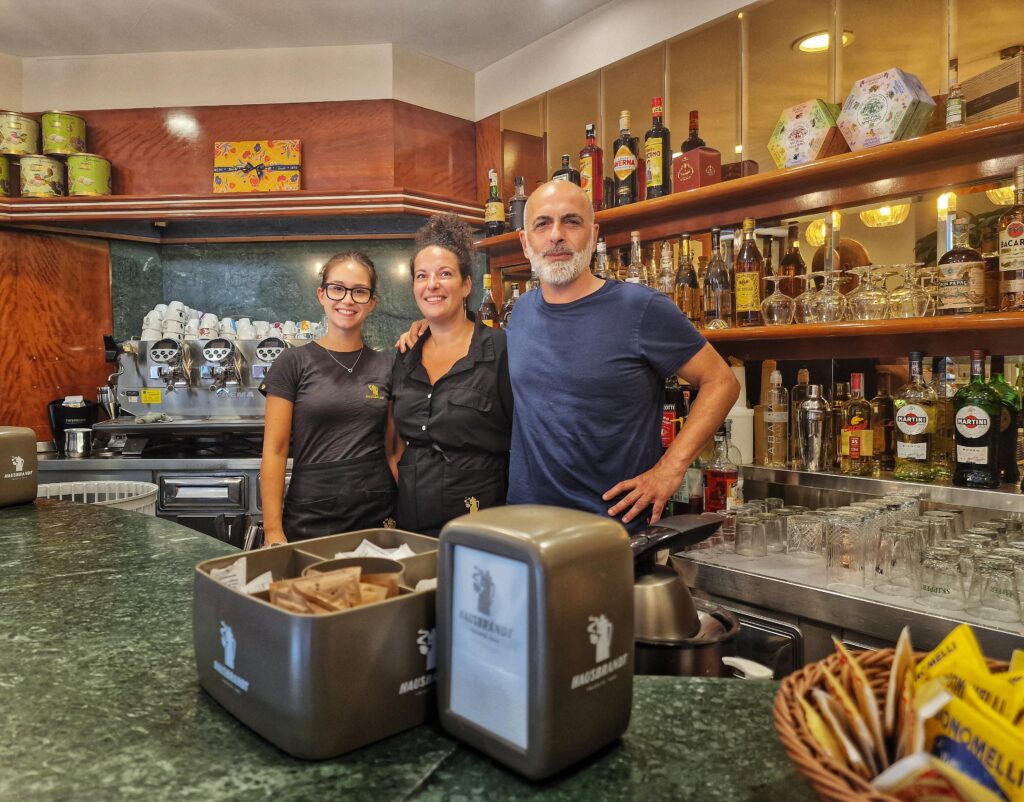
and Mario
Later in the day I would pop back to the corner bar for a beer or a glass of prosecco, and if not too busy Francesca was happy to keep me right with my Italian pronunciation and we stumbled around each other with a mix of Italian and English phrases.
In another part of town, north of the main shopping street Via Fillungo and close to Piazza Santa Maria, Bar Martini became my designated local bar in the second month of my visit
Mine hostess Julie warmed to me when she discovered I was up for trying to speak Italian and she pointed out that many foreigners who buy property and live in Lucca don’t bother to learn the language.
A few mornings in – and once Julie had stopped gently ribbing me about my cappuccino bollente – the hottest in Lucca in my humble opinion – I could bank on a friendly welcome and a brief chat on what I had been up to the day before or what my plans were for later.
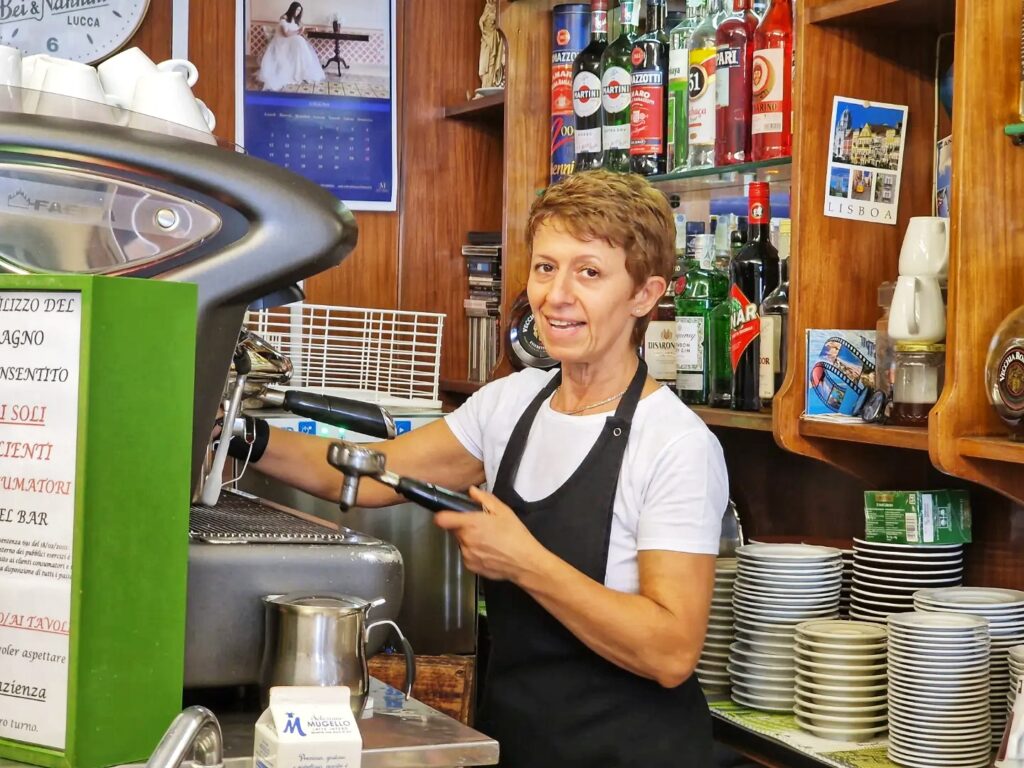
One morning I was intrigued – and impressed – to see at about 11am an elderly lady consuming what I assumed to be a caffe corretto – a shot of espresso with a liqueur such as grappa, sambuca or rum and served in a small glass. But no Julie explained, the older generation of Lucchese eschew cups and traditionally have their caffe served in un bicchiere.
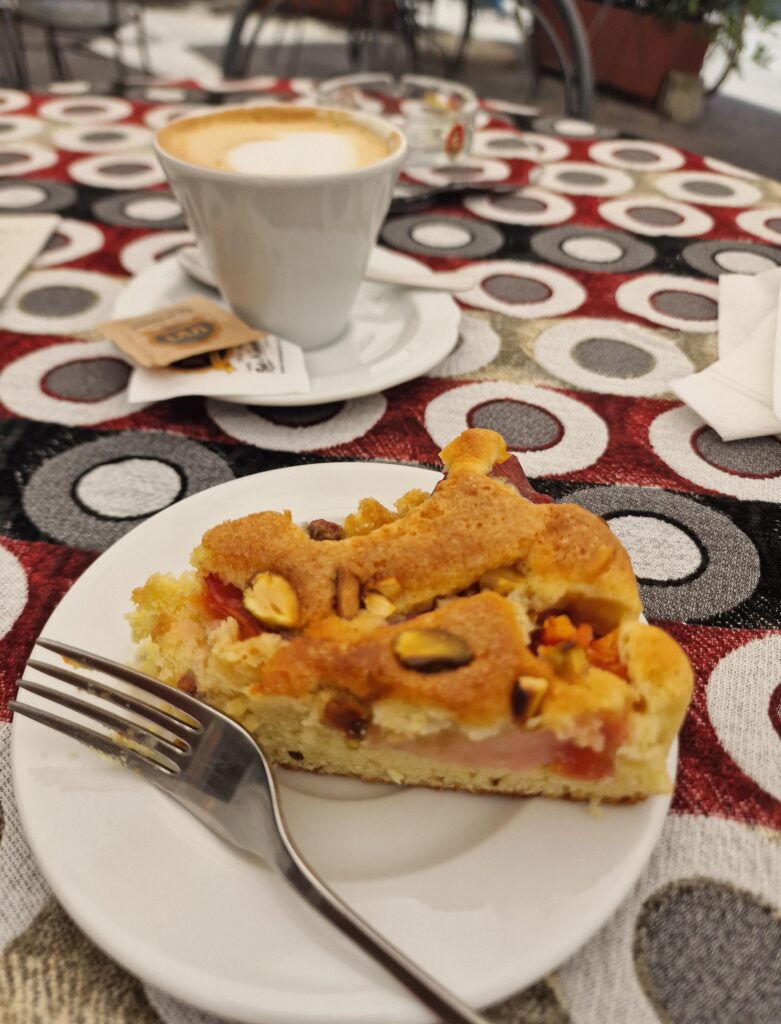
Another great thing about Italian bar culture – many stock one or more of the daily newspapers for customers to leaf through. My best advice for finding out what is going on locally and around town is to pick up a newspaper and skip through it over your coffee.
Most papers like Il Tirenno and La Nazionale have “slip editions” – regional pages which cover news and events of the major cities in the region and both carried good coverage of Lucca and the surrounding towns.
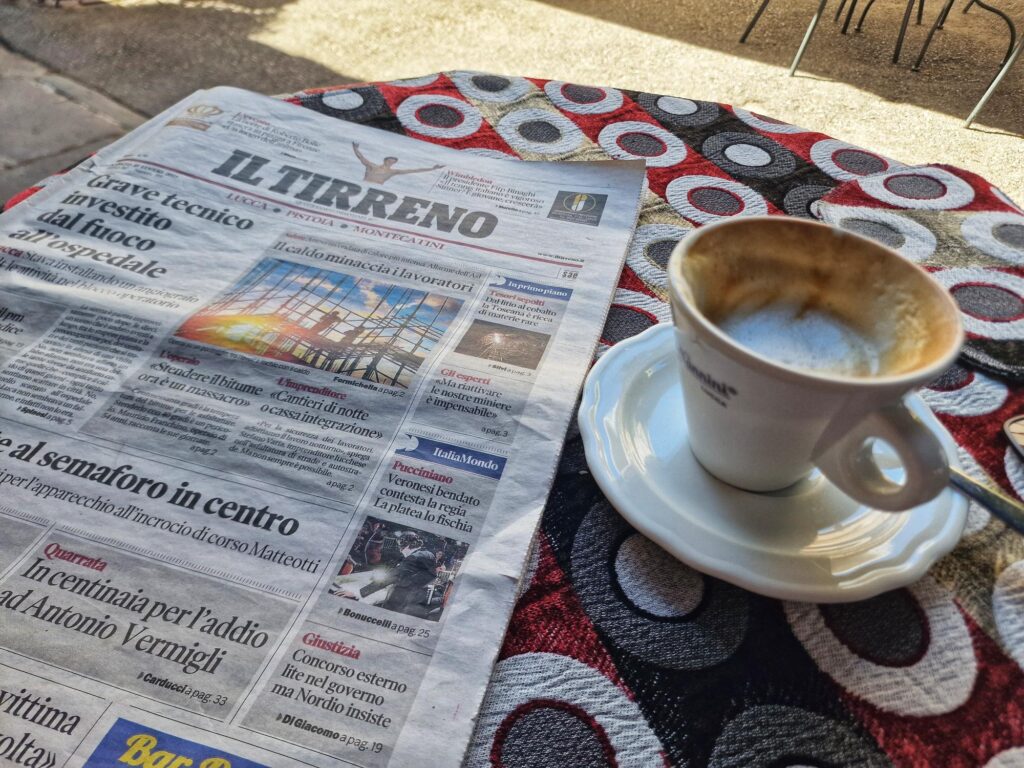
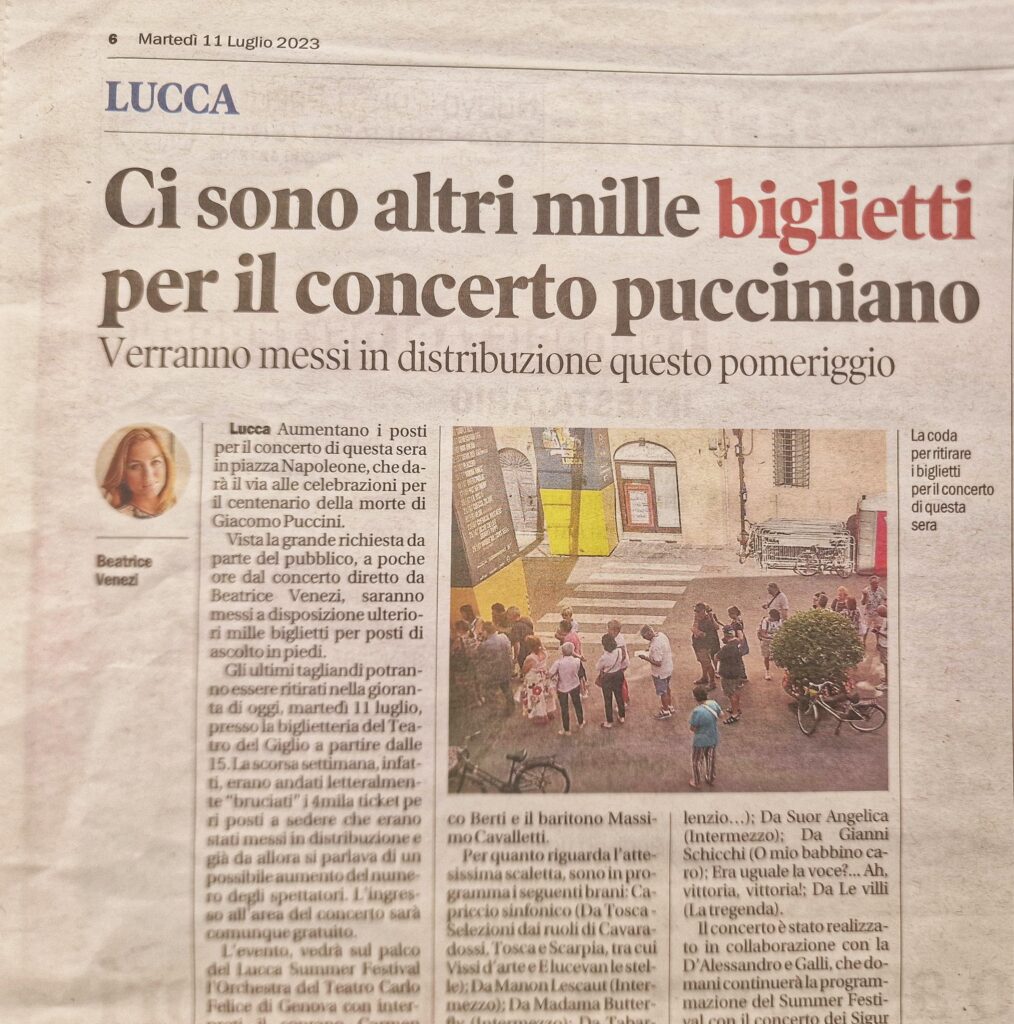
If your Italian is limited, use a tool like Google Translate’s camera option, which scans the article and gives a half-decent translation of the content. On more than a few occasions I have stumbled upon some event or concert or exhibition taking place that week which otherwise I would have missed if I had not read it in the daily giornale.
There is no shortage of great bars (and restaurants) in Lucca but the penny or cent dropped that it was time to head home to Edinburgh when one night at Betty Blue, a late night bar I would invariably stop off at on the way home, one of the lovely staff presented me with a Betty Blue t-shirt, which Sandro, one of the regulars, informed me was not handed out lightly.
Salute!
- Buckfast or “Buckie” – for non Scottish readers, a sweet tonic wine with added caffeine, brewed by monks in Devon in the south of England, which is consumed in high volumes by teenagers and youngsters in the west of Scotland. Also known as a Coatbridge Negroni – Coatbridge being a town near Glasgow which was claimed to account for 10% of all Buckfast sales.

